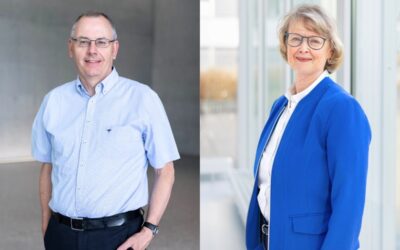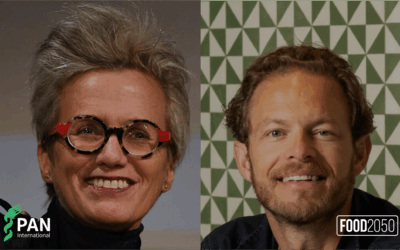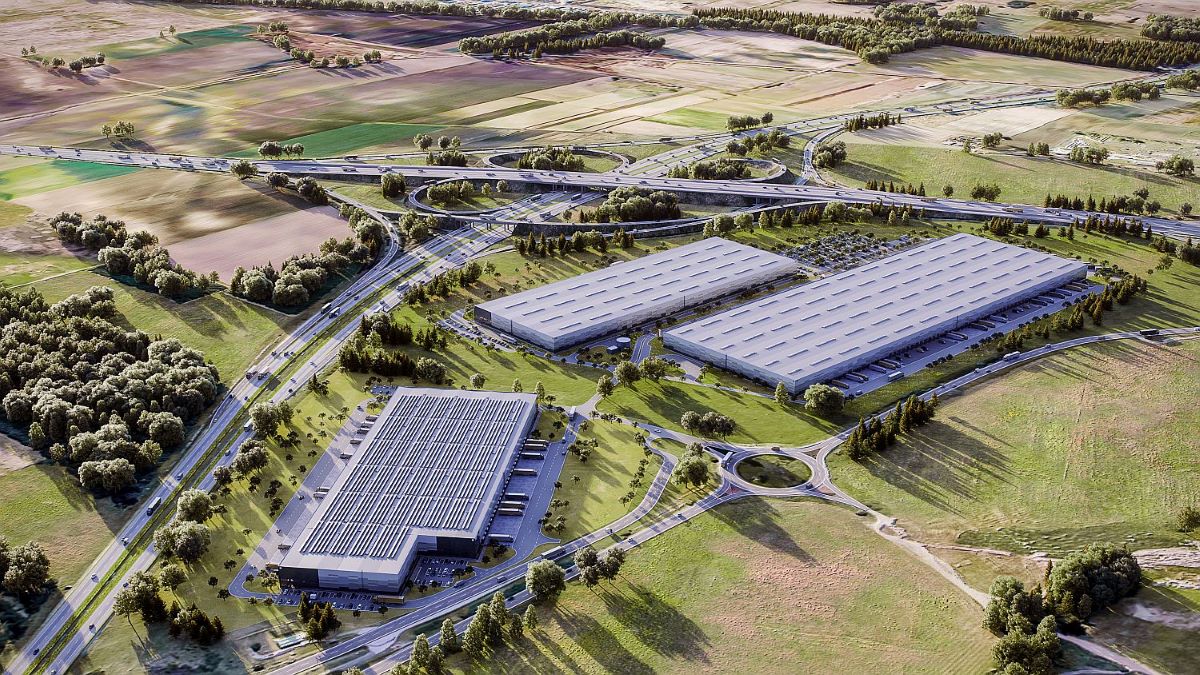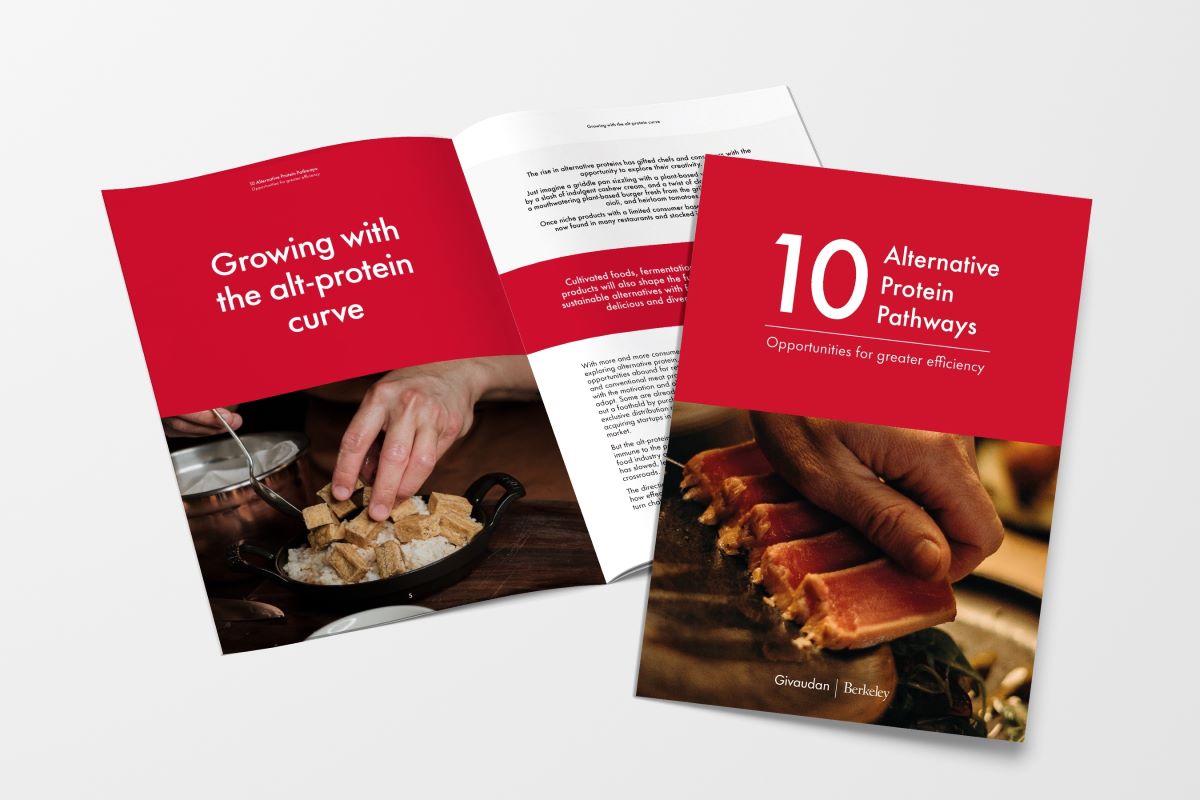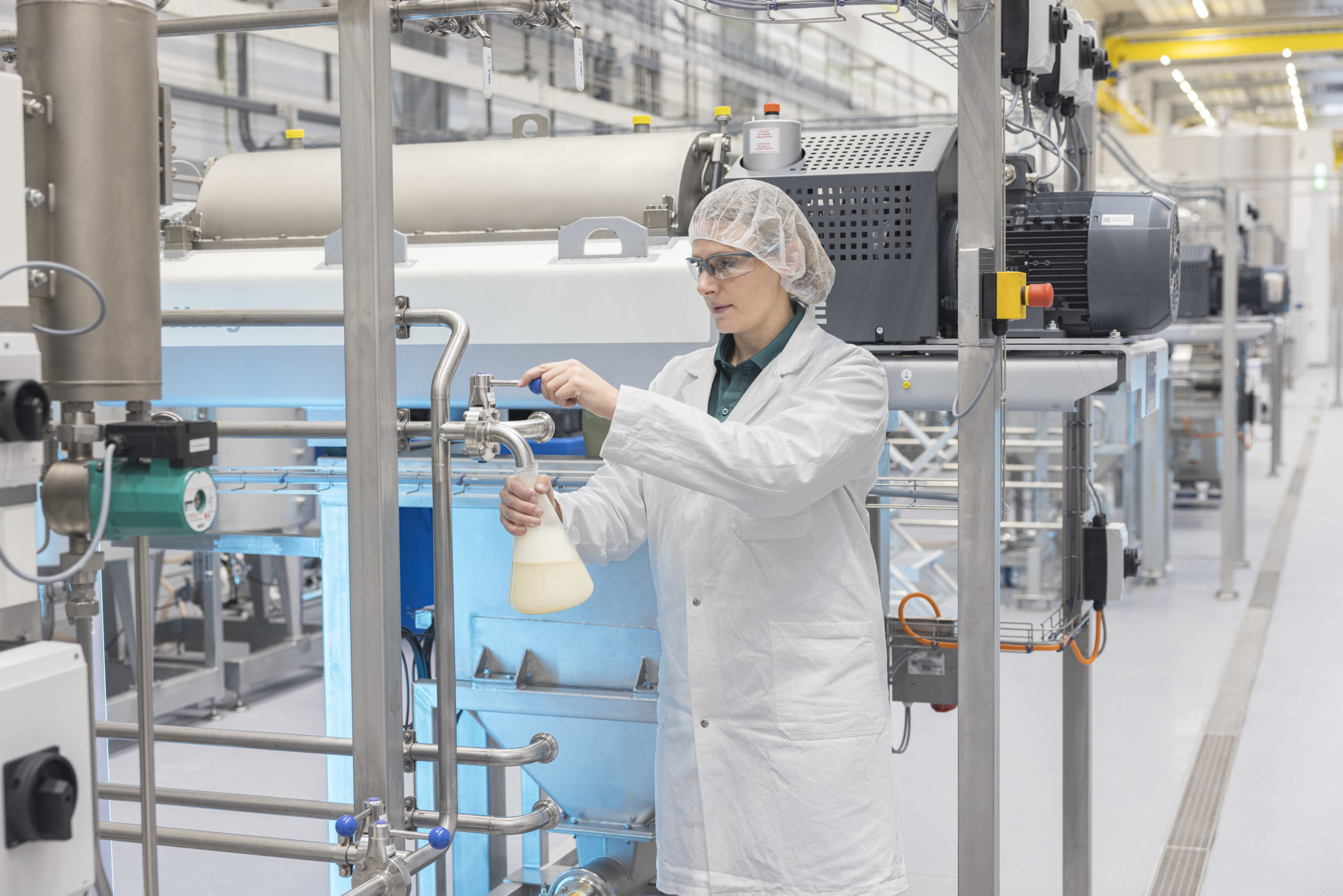Can food be healthy, tasty – and...
Beyond one-size-fits-all: can precision nutrition democratise health?
Beyond one-size-fits-all: can precision nutrition democratise health?

In the first of our Impact Platform Digests, we sat down with 3 experts from the Swiss food innovation ecosystem to explore the potential of precision nutrition. Typically seen as a tool to tackle the west’s comorbidity crisis, could it also be used to allow colleagues working in lower and middle-income countries to tailor recommendations for broader population groups?
When you think of precision nutrition, many of us think of individual solutions developed for markets in high-income countries. From genetic tests to exploring a person’s metabolic responses to specific foods, innovators aim to provide their customers with tailored dietary recommendations to keep them healthy. These developments already offer significant potential to tackle the co-morbidities crisis that plagues much of the western world.
But what if we could also go a step further? Over the last decade, new technologies and new multidisciplinary approaches have led to significant advances in nutrition science. Many experts now also see the potential for precision nutrition to provide accessible, affordable, targeted and well-informed recommendations for broader population groups.
Last month, Valley partners came together at Food Day @ETH to share the latest research in this space and explore how precision nutrition strategies can be applied in practice. The session was immensely valuable, but we were left feeling that the insights discussed needed to be shared beyond those four walls – to show what’s possible and engage partners across the ecosystem who will play a role transforming today’s cutting-edge knowledge into tomorrow’s practical solutions.
So we invited three Valley partner experts, Goranka Tanackovic from Gene Predictus, Kesso Gabrielle van Zutphen-Küffer from Sight & Life and Frederic Ronga from Nestlé to share their take on where the future of precision nutrition is headed. Here’s what they said.
Do you see precision nutrition focusing on personalised solutions for individual nutrition or becoming an approach that facilitates more targeted population level interventions in the future?
Goranka Tanackovic: In fact, personalised nutrition strategies already exist at population level and many are already well implemented. This might be tailoring recommendations for pregnant women, sports professionals or certain types of patients, such as people with diabetes or a gluten intolerance. In the last few decades there has been a tremendous amount of technological developments and large cohort/population-level studies have allowed us to further segment different populations and provide precision nutrition solutions that are better tailored to their needs. But of course, more research is needed. Systemic studies in particular will allow us to combine information about nutritional habits with genetic, epigenetic, biomarkers and microbiota measurements in a longitudinal manner.
Kesso Gabrielle van Zutphen-Küffer: For me it’s about addressing the needs of both individuals and entire communities. At Sight and Life, we’re dedicated to identifying and supporting the groups most in need. We are always asking ourselves: “Which groups can we impact the most with our health and nutrition initiatives? How do we make sure our methods are safe and work well? And how do we make the best use of our data and resources to push public health forward?” As we look ahead, I’m convinced that precision nutrition will be crucial for public health, inspiring innovative ways to assist even in places where resources are limited. It’s a gradual process, but we are committed to employing data, whether it is general or specific, to break away from generic one-size-fits-all solutions and develop nutrition strategies that truly align with the unique context of different communities.
Frederic Ronga: If we want precision nutrition to succeed in addressing needs of individuals, it definitely also needs to cater to target population groups with specific needs. Precision nutrition has an aspect of diagnosis, which is key to personalised recommendations within targeted populations. The rapid progress in digital technology and its widespread use are key enablers of such diagnostics at population level. As a matter of fact, precision nutrition has already been able to facilitate more targeted interventions. To give an example, we are using digital tools to help parents and healthcare professionals identify children at risk of micronutrient deficiencies in South-East Asia, and then use this information to provide them with targeted dietary recommendations.
In your opinion, which groups of people could benefit the most from precision nutrition strategies?
Goranka Tanackovic: In my opinion, the populations that could benefit the most from precision nutrition strategies are groups of patients affected by diverse metabolic diseases like diabetes, obesity and anorexia or by food intolerances and food allergies like gluten or lactose-intolerant. Elderly individuals could also benefit significantly, as the absorption of certain vitamins decreases with age and existing genetic and nutritional differences can further exacerbate the deficiency, as is the case in relation to vitamin B12.
Kesso Gabrielle van Zutphen-Küffer: In relation to Sight and Life’s work, I see precision nutrition as a tool that can help us understand and address complex health conditions such as stunting, obesity, chronic diseases, and anemia, which impacts 1.8 billion people worldwide.
Frederic Ronga: It might be obvious, but the more specific the health needs of an individual are, the more benefit precision nutrition brings. One-size-fits-all generally works well for healthy populations. There are already great and rather exhaustive examples of populations that benefit from precision nutrition in the above answers. What will make those strategies successful, however, is also their ability to fulfill the needs of individuals at scale.
What needs to happen next to maximise the impact of precision nutrition strategies?
Goranka Tanackovic: Precision nutrition will allow a shift towards disease prevention. Although the benefits of such tailored approaches are no longer questioned in relation to many pathologies, socioeconomic and health-economic studies are not exhaustive enough. Further studies are needed to quantify the socioeconomic benefits more precisely, as well as the benefits in terms of reducing healthcare system costs. A focus on prevention would definitely have a positive impact in these two areas.
Kesso Gabrielle van Zutphen-Küffer: I see tailored strategies for accurate diagnosis, prevention, and treatment as crucial, especially for high-risk groups like children, adolescents, and pregnant women. In many low- and middle-income countries, where conditions like malaria often impair iron absorption and metabolism, implementing precision nutrition and point-of-care diagnostics can be highly effective. Quickly and accurately identifying the various causes of anaemia, including genetic blood disorders, iron deficiency, infections, inflammation, and gynaecological issues, is essential for providing safe and effective treatment and ultimately increasing survival rates.
Frederic Ronga: I believe the progress in digital health technology will play a key role in driving cost-effective strategies. Also key is the potential to transfer precision nutrition strategies from one population to another, as well as the ability to lower economical and environmental impact by deploying precision nutrition strategies at scale. In my opinion, only strategies that are sustainable in all respects will succeed.
Are you a Valley partner interested in finding out more about precision nutrition? Sign up here to join our forthcoming Valley forum on precision nutrition.
Never miss a Swiss food innovation morsel.
Latest News
Jerome Barra: “Can food be healthy, tasty – and sustainable?”
Bühler names two Fellows for advancing sustainability and technological innovation
Bühler has named Béatrice Conde-Petit,...
Yumame Foods x Agilery: Laying the foundations to make fermented foods the star of the plate
Valley partner Yumame Foods...
FOOD2050 teams up with PAN International to advance the Planetary Health Diet from science to the serving line
Valley partner FOOD2050 has partnered...

